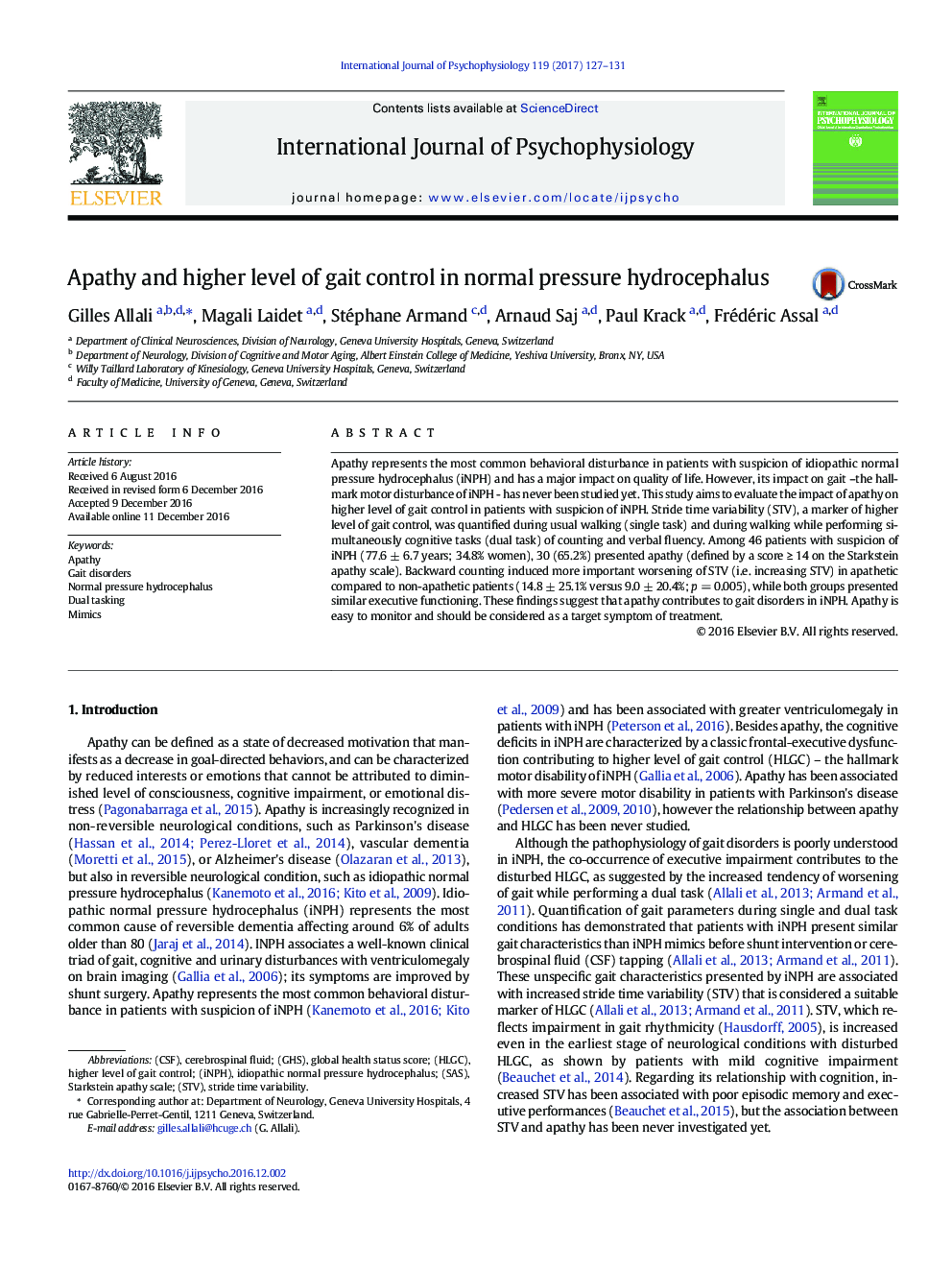| Article ID | Journal | Published Year | Pages | File Type |
|---|---|---|---|---|
| 5042283 | International Journal of Psychophysiology | 2017 | 5 Pages |
â¢Apathy is very prevalent in patients with normal pressure hydrocephalus.â¢Apathy contributes to gait disorders in normal pressure hydrocephalus.â¢Apathy affects a specific domain of higher level of gait disorders.
Apathy represents the most common behavioral disturbance in patients with suspicion of idiopathic normal pressure hydrocephalus (iNPH) and has a major impact on quality of life. However, its impact on gait -the hallmark motor disturbance of iNPH - has never been studied yet. This study aims to evaluate the impact of apathy on higher level of gait control in patients with suspicion of iNPH. Stride time variability (STV), a marker of higher level of gait control, was quantified during usual walking (single task) and during walking while performing simultaneously cognitive tasks (dual task) of counting and verbal fluency. Among 46 patients with suspicion of iNPH (77.6 ± 6.7 years; 34.8% women), 30 (65.2%) presented apathy (defined by a score â¥Â 14 on the Starkstein apathy scale). Backward counting induced more important worsening of STV (i.e. increasing STV) in apathetic compared to non-apathetic patients (14.8 ± 25.1% versus 9.0 ± 20.4%; p = 0.005), while both groups presented similar executive functioning. These findings suggest that apathy contributes to gait disorders in iNPH. Apathy is easy to monitor and should be considered as a target symptom of treatment.
